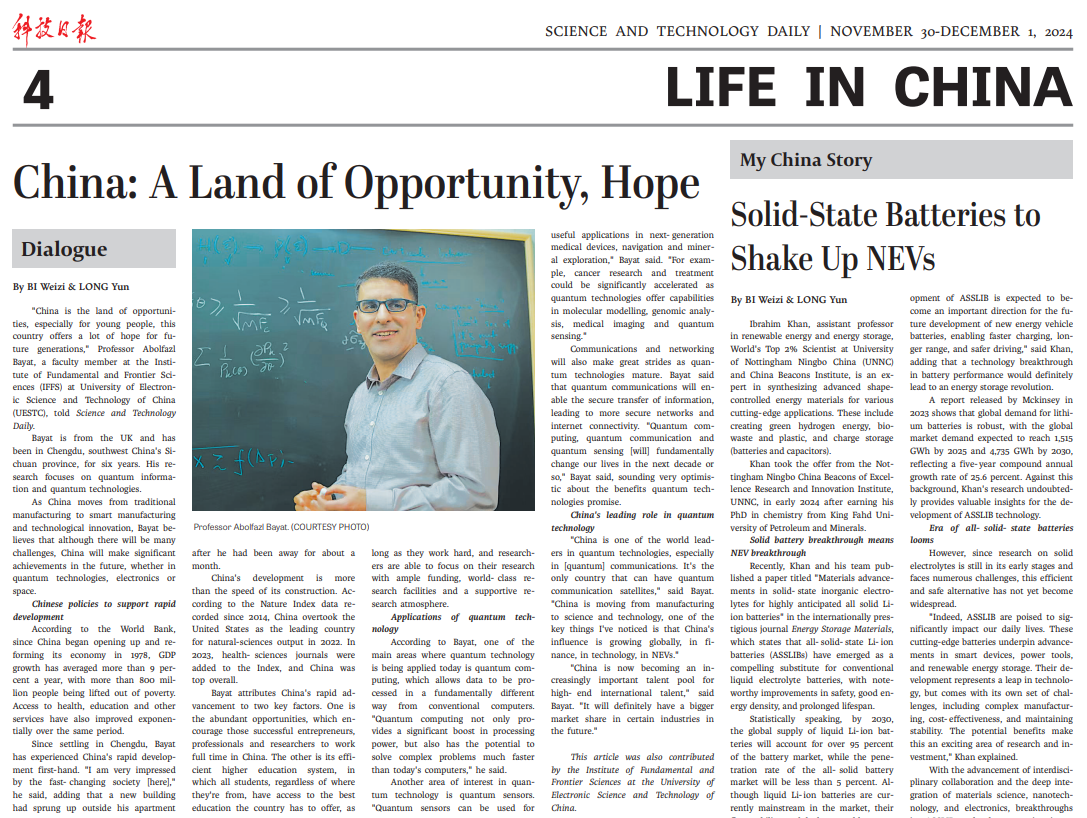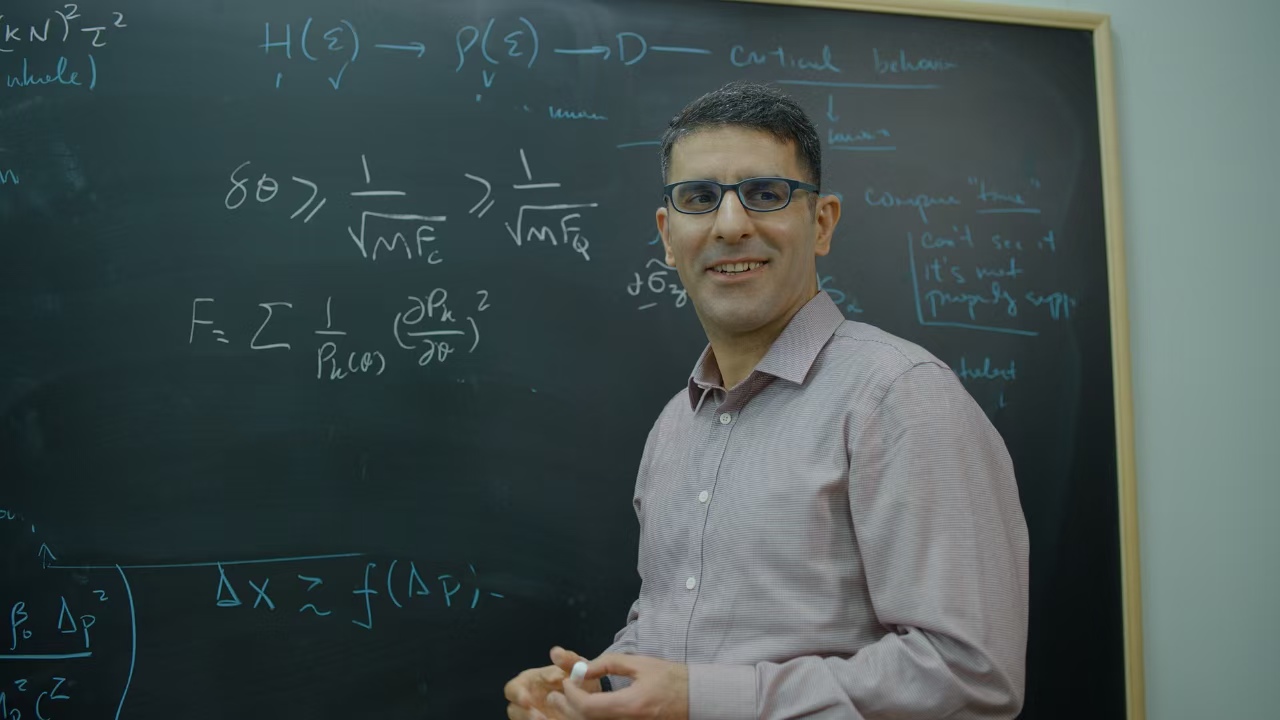即可将网页分享至朋友圈

"China is the land of opportunities, especially for young people, this country offers a lot of hope for future generations," Professor Abolfazl Bayat, a faculty member at the Institute of Fundamental and Frontier Sciences (IFFS) at University of Electronic Science and Technology of China (UESTC), told Science and Technology Daily.
Bayat is from the UK and has been in Chengdu, southwest China's Sichuan province, for six years. His research focuses on quantum information and quantum technologies.
As China moves from traditional manufacturing to smart manufacturing and technological innovation, Bayat believes that although there will be many challenges, China will make significant achievements in the future, whether in quantum technologies, electronics or space.

Chinese policies to support rapid development
According to the World Bank, since China began opening up and reforming its economy in 1978, GDP growth has averaged more than 9 percent a year, with more than 800 million people being lifted out of poverty. Access to health, education and other services have also improved exponentially over the same period.
Since settling in Chengdu, Bayat has experienced China's rapid development first-hand. "I am very impressed by the fast-changing society [here]," he said, adding that a new building had sprung up outside his apartment after he had been away for about a month.
China's development is more than the speed of its construction. According to the Nature Index data recorded since 2014, China overtook the United States as the leading country for natural-sciences output in 2022. In 2023, health-sciences journals were added to the Index, and China was top overall.
Bayat attributes China's rapid advancement to two key factors. One is the abundant opportunities, which encourage those successful entrepreneurs, professionals and researchers to work full time in China. The other is its efficient higher education system, in which all students, regardless of where they're from, have access to the best education the country has to offer, as long as they work hard, and researchers are able to focus on their research with ample funding, world-class research facilities and a supportive research atmosphere.
Applications of quantum technology
According to Bayat, one of the main areas where quantum technology is being applied today is quantum computing, which allows data to be processed in a fundamentally different way from conventional computers. "Quantum computing not only provides a significant boost in processing power, but also has the potential to solve complex problems much faster than today's computers," he said.
Another area of interest in quantum technology is quantum sensors. "Quantum sensors can be used for useful applications in next-generation medical devices, navigation and mineral exploration," Bayat said. "For example, cancer research and treatment could be significantly accelerated as quantum technologies offer capabilities in molecular modelling, genomic analysis, medical imaging and quantum sensing."
Communications and networking will also make great strides as quantum technologies mature. Bayat said that quantum communications will enable the secure transfer of information, leading to more secure networks and internet connectivity. "Quantum computing, quantum communication and quantum sensing [will] fundamentally change our lives in the next decade or so," Bayat said, sounding very optimistic about the benefits quantum technologies promise.
China's leading role in quantum technology
"China is one of the world leaders in quantum technologies, especially in [quantum] communications. It's the only country that can have quantum communication satellites," said Bayat. "China is moving from manufacturing to science and technology, one of the key things I've noticed is that China's influence is growing globally, in finance, in technology, in NEVs."
"China is now becoming an increasingly important talent pool for high-end international talent," said Bayat. "It will definitely have a bigger market share in certain industries in the future."
This article was also contributed by the Institute of Fundamental and Frontier Sciences at the University of Electronic Science and Technology of China.
编辑:王晓刚 / 审核:罗莎 / 发布:李果


